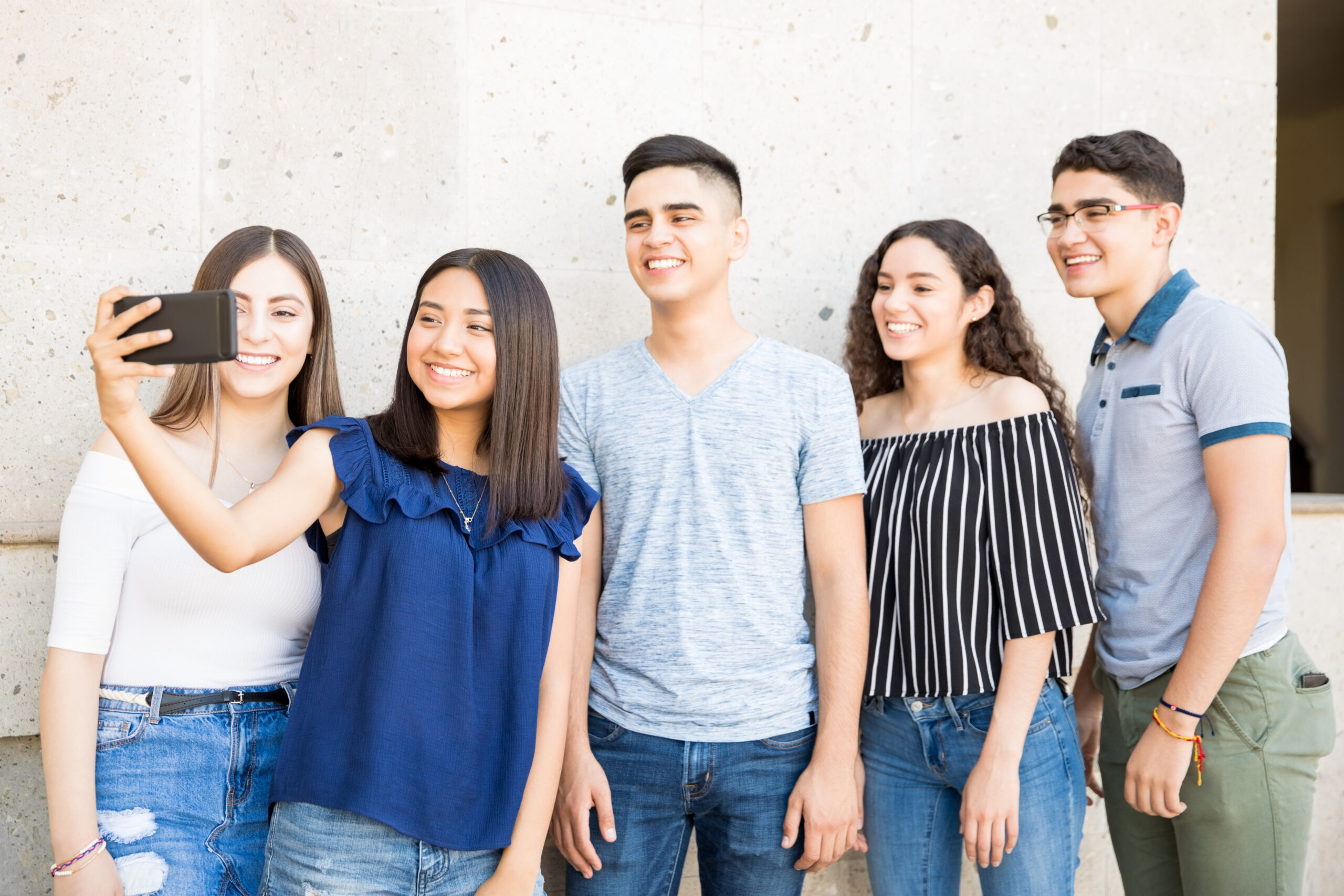“Comparison is the thief of joy.” – Theodore Roosevelt
Though Roosevelt couldn’t have imagined Instagram or TikTok when he spoke these words, his insight feels more relevant today than ever before. As a licensed counselor working with teens for nearly a decade, I’ve watched social media transform from a fun way to connect with friends into something far more complex—a constant stream of carefully curated highlights that can leave even the most confident teens questioning their worth.
Whether you’re a parent concerned about your teen’s screen time or a young person struggling with the emotional rollercoaster of social comparison, understanding this phenomenon can help you navigate these digital spaces without sacrificing authentic self-worth.
How Social Media Changes the Comparison Game
Humans have always compared themselves to others—it’s a natural cognitive tendency that helps us evaluate our standing and progress. But social media has fundamentally altered this process in several critical ways:
Volume and frequency: You or your teen now has instant access to thousands of comparison points throughout the day, rather than just those in their immediate community.
Highlight reels vs. reality: What you see online represents highly selective, edited, and often artificially enhanced moments rather than balanced reality. Even “authentic” content is usually carefully chosen and framed.
Algorithmic amplification: Social platforms are designed to show content that triggers strong emotional responses, often featuring exceptionally attractive, successful, or wealthy individuals who represent statistical outliers.
Invisible context: The background factors that contribute to others’ achievements or appearances—financial resources, unseen help, genetic factors, or pure luck—remain conveniently hidden.
The result is a comparison environment that’s psychologically stacked against healthy self-perception. Your teen isn’t just comparing themselves to peers; they’re comparing their unfiltered reality to thousands of algorithmically amplified highlight reels.
The Hidden Impact on Teen Development
When teens fall into the comparison trap, several concerning patterns can emerge:
Contingent self-worth: Your teen may begin basing their value on external metrics—likes, followers, or how they measure up against others—rather than developing intrinsic sources of worth.
Phantom ideal pursuit: Constantly exposed to idealized images and lives, teens may chase an ever-shifting, ultimately unattainable “perfect” standard.
Diminished accomplishment joy: Achievements that should bring satisfaction lose their luster when immediately compared to someone who seemingly did it better.
Authenticity erosion: The pressure to present a socially acceptable online persona can disconnect teens from their authentic interests and values.
Social disconnection paradox: Platforms designed for connection often leave teens feeling more isolated when they perceive themselves as falling short compared to peers.
Recognizing Warning Signs
Watch for these indicators that social media comparison might be affecting your teen:
- Mood shifts that correlate with social media use
- Making frequent negative self-statements after scrolling
- Deleting posts that don’t receive enough engagement
- Excessive concern about how they appear in photos
- Expressing that “everyone else” has more friends, better experiences, or greater achievements
- Decreased interest in previously enjoyed activities that aren’t “post-worthy”
- Multiple attempts to capture the “perfect” photo for posting
Building Comparison Resilience
While limiting social media exposure can help, developing internal resilience offers more sustainable protection. Try these approaches:
Practice intentional awareness: Help your teen recognize comparison moments as they happen. Simply naming the process—“I notice I’m comparing myself to this person right now”—creates space for healthier responses.
Question the narrative: When comparison triggers negative feelings, encourage your teen to ask: “What context am I missing here? What went into creating this perfect-looking moment? What parts of this person’s life am I not seeing?”
Curate consumption consciously: Support your teen in auditing their social feeds. Who consistently triggers negative feelings? Which accounts foster genuine connection or inspiration rather than comparison? Unfollowing accounts that reliably diminish self-worth isn’t avoidance—it’s healthy boundary-setting.
Redirect to personal values: Help your teen reconnect with what genuinely matters to them, not what earns external validation. Ask: “If nobody could see or like this, would it still feel meaningful to you?”
Celebrate authenticity: When you notice your teen making choices based on their genuine interests rather than social approval, acknowledge and affirm this courage.
Model a healthy relationship with validation: Teens learn by watching. Share your own journey with managing external validation or discuss times when you’ve chosen authenticity over approval.
When Professional Support Helps
Consider seeking additional support when:
- Your teen’s self-worth seems increasingly dependent on social validation
- Comparison leads to persistent negative emotions or avoidance behaviors
- Body image concerns intensify around social media use
- Social media use interferes with sleep, academics, or in-person relationships
- Your teen expresses feelings of hopelessness about measuring up
Professional counseling can help teens develop stronger internal worth foundations and healthier relationships with social comparison, providing tools that serve them throughout life.
Finding Balance in the Digital Age
The goal isn’t necessarily eliminating social media—these platforms offer genuine benefits when used mindfully. Instead, we want to help teens develop the critical thinking skills and strong sense of self necessary to engage with these spaces without losing their authentic worth.
Remember that comparison itself isn’t the problem; it’s allowing comparison to define value that steals joy. By teaching teens to recognize comparison triggers and reconnect with intrinsic worth, you give them a valuable skill that will serve them long after today’s popular platforms become tomorrow’s digital dinosaurs.
Rachel Moyer, M. Ed, MS, LPC, CAADC is a Licensed Professional Counselor specializing in teen mental health and digital wellness at EPIC Counseling Solutions in Camp Hill, PA. With extensive experience supporting young people through the challenges of the digital age, Rachel brings specialized knowledge in helping teens develop healthy relationships with social media while maintaining authentic self-worth. To learn more or schedule a consultation, visit our website or call ((717) 966-6847.





